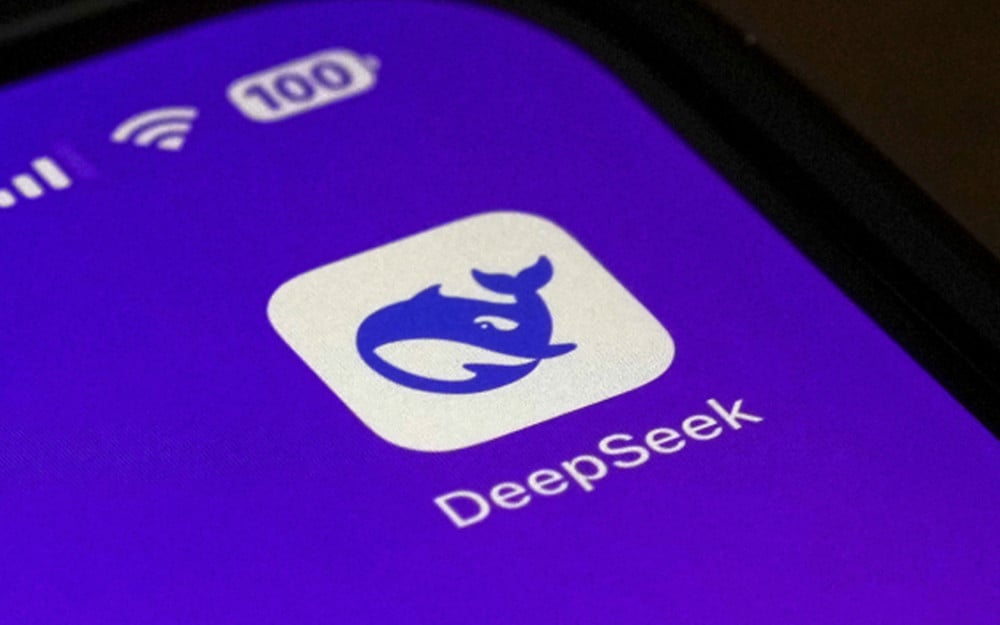
The Ministry of Trade, Industry, and Energy of South Korea has temporarily blocked the use of DeepSeek, a Chinese generative artificial intelligence (AI) tool. This marks the first government-imposed restriction on DeepSeek. Following the ministry's decision, the Ministry of Foreign Affairs and the Ministry of National Defense also implemented similar measures. The ban was imposed over concerns that DeepSeek collects excessive training data, potentially creating security vulnerabilities and increasing the risk of information leakage.
According to government and information technology (IT) industry sources on February 5, the Ministry of Trade, Industry, and Energy prohibited the use of DeepSeek within its internal networks. State-owned enterprises, such as Korea Hydro & Nuclear Power (KHNP) and Korea Plant Service & Engineering (KEPCO KPS), which handle nuclear power plant operations and power transmission facility maintenance, respectively, have also banned the use of DeepSeek. This marks the first case of restricting DeepSeek in the South Korea public sector.
The bans by the ministry, KHNP, and KEPCO KPS appear to be due to security concerns. DeepSeek has been criticized for its potential to leak data and its weak personal information protection measures. Ha Jung Woo, head of Naver Future AI Center, stated, "It is already well known there is a high risk of personal information leakage," adding, "All user data from DeepSeek-operated chatbots and apps are stored in Chinese databases." A ministry official explained, "The Personal Information Protection Commission has raised concerns at the government level about DeepSeek’s data collection and processing practices, which remain unresolved. As a precaution, DeepSeek has been blocked from use in our internal network." A KEPCO KPS representative added, "Nuclear power plants are classified as top-level national security facilities, so we need to be cautious about the possibility of key information being collected by AI systems hosted on Chinese servers." A spokesperson for the Ministry of Foreign Affairs also confirmed, "We have taken necessary measures, including blocking access to DeepSeek."
Beyond South Korea, other countries are also moving to ban DeepSeek. On the previous day, the Australian government prohibited the use of DeepSeek on government systems and devices. Australian Home Affairs Minister Tony Burke stated, "DeepSeek poses unacceptable risks, and this immediate ban is for the protection of national security and national interests." Italy’s data protection authority, Garante, issued a ban on DeepSeek on January 29, citing its lack of transparency in handling personal data. Taiwan has also prohibited its government agencies from using DeepSeek, while Japan, the UK, and the Netherlands are considering various regulations regarding its use.
As governments worldwide restrict DeepSeek, private companies are reacting sensitively and reinforcing their security measures. In South Korea, Kakao, LG Uplus, and Line Yahoo (a joint venture between Naver and SoftBank Group) have instructed their affiliates to prohibit the use of DeepSeek for business purposes.
Kakao has partnered with OpenAI (company behind ChatGPT) and plans to integrate its technology into Kakaotalk. In addition, the company has prohibited all employees from using DeepSeek’s AI services.Analysts suggest that this move aims to prevent potential data leaks and strengthen its alliance with OpenAI, DeepSeek’s rising competitor. Kakao recently notified its employees that "the use of DeepSeek for internal business purposes is strictly prohibited."
This decision appears to be a response to concerns that DeepSeek collects not only users’ names and birthdates but also keyboard usage patterns and audio data for AI training.
At the same time, Kakao’s strategic partnership with OpenAI seems to have influenced this decision. As the first South Korean company to form an alliance with OpenAI, Kakao is working on joint product development. OpenAI CEO Sam Altman, who visited South Korea on February 4, attended the 'Kakao AI Media Day' event and stated, "I have a long-term appreciation for Kakao and share their AI vision."
An industry insider noted, "With DeepSeek emerging as a strong competitor in the AI market dominated by OpenAI, Kakao appears to be aligning itself with OpenAI." Given that Kakao is integrating OpenAI’s ChatGPT into its new AI service, "Kanana," the company likely considered data protection risks in making this decision.
Line Yahoo has also recently informed its headquarters and major affiliates, including Line Plus, IPX, and Line Games, that DeepSeek is prohibited for business use. A company representative stated, "This decision was made as a precautionary measure against security risks."
On the same day, LG Uplus issued an internal security notice prohibiting the use of DeepSeek. The company has banned employees from accessing DeepSeek through its internal network for business purposes and has advised staff to refrain from using it on personal computers until its security stability is verified.
Meanwhile, China appears to be countering this trend with aggressive policies and government-backed initiatives. The Chinese government has allowed domestic companies to utilize the personal data of its 1.4 billion citizens for AI training, while also providing research and development (R&D) funding and tax incentives. As a result, Chinese AI firms like Alibaba, Tencent, and DeepSeek are joining forces to strengthen their technological capabilities in a bid to challenge the U.S. in the AI sector.
 SHARE
SHARE








































